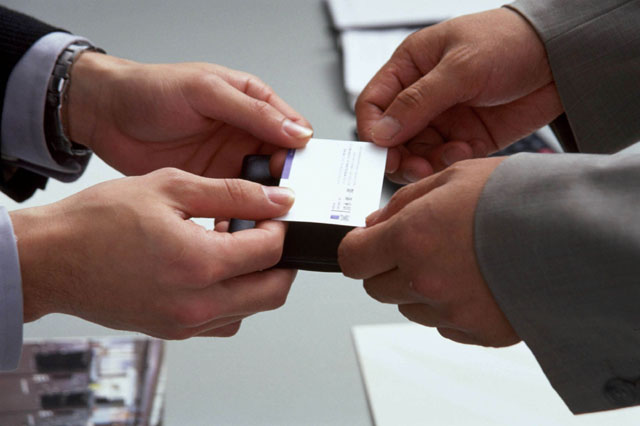To get ahead in Japan, it isn’t who you know – it’s how long you’ve known them!

Traditional Japanese values dictate that the length of a relationship almost always correlates with the depth and importance of the relationship, and so the Japanese system of developing social and professional networks of contacts, 人脈 (jinmyaku), is fundamentally different to the customs found outside of Japan (particularly outside of East Asia). Westerners, in the loosest sense of the term, tend to make friends relatively quickly, and then when they move house or job, see their old friends less and develop new ones.
The Japanese however tend to make friends more slowly and if in doubt seek out old friends rather than new ones. Westerners also tend to think of people in terms of shared abilities and traits, whereas Japanese tend to group people by loyalties, duties and affiliations (simply compare the role, purpose and behaviour of trade unions in Japan and the West, and this observation will instantly ring true). The exact cultural and historical reasons for these social differences are many and fascinating, and Chie Nakane’s ‘Japanese Society’ is essential reading to anyone who wishes to develop a solid grasp of the social structures of Japan.
How can being aware of jinmyaku help you achieve success in Japan? The central lesson has got to be this: first impressions count, but continuing impressions count more!
The tendency to value current relationships over prospective ones as expressed in jinmyaku can also be seen in Japan’s companies. Japanese firms are reputed for playing the long game: they expect relationships to grow and develop and to be rewarding on an ongoing basis. Very rarely will a Japanese firm jump at a “one time special deal”. If in doubt, a Japanese potential partner company will revert to ‘the devil it knows’ rather than take a risk on a new business relationship, especially one without its own established reputation and jinmyaku in Japan.
So, how do Japanese companies and individuals ensure that relationships are rewarding on an ongoing basis? Well, one answer to that is “service” or “サービス” (saabisu).
When Is Service Not Service?
As cultures meet and mix it is inevitable that words will cross from one language to another. We will hear of a company’s head honcho being grilled on a news show, or a friend might invite us to enjoy an evening’s karaoke. If we are very lucky, we might just have our Christmas office meal at a nice teppanyaki joint.
As English speakers absorb more and more Japanese culture and language (and vice versa), it seems logical to assume that greater understanding will therefore follow. Alas, this is not always the case! Words tend to have a life of their own, and rarely stay still in a living culture.
“Saabisu” has grown and changed beyond all recognition, and now has a whole set of very specific cultural and behavioural implications when used by the Japanese. In addition, it is almost universally rendered in katakana, the Japanese “loanword” script, and so many Japanese will assume that English speakers will understand their interpretation of the term, further complicating matters.
As with many complex social customs, the meaning of “saabisu” in a transactional context can most easily be explained by way of anecdote: a Japanese person regularly chooses to go to their local greengrocer, so over time their personal bond with the shop staff/owner increases in depth and importance. The green grocer will start to give either small gifts or discounts to the customer as “saabisu”. In this context, saabisu is a way of thanking someone. So far, so simple. However, the use of saabisu gifts and discounts also impose a kind of subtle social peer pressure on our grocery shopper: to continue doing the thing you thanked them for – shopping at your store.
The customer can end up feeling pressured if the saabisu is too much, but as there is the matter of face/reputation to consider, a subtle exchange of saabisu for continued custom will develop, and hopefully a happy equilibrium will be achieved. It can also be expected that you, as a loyal customer who enjoys saabisu benefits, will actively “put out a good word” about the business, or even bring in new customers.
As the shop owner, saabisu is a very important way of communicating to a person that their custom is personally important to you. As saabisu is a fact of life for Japanese people and companies, when doing business in Japan, Western firms must adequately budget for these gifts on an ongoing basis at all levels of personal contact.
One interesting side effect of saabisu is that it isn’t simply an expression of the prioritisation of the known over the unknown, but actively reinforces the urge to develop deeper long term relationships – the requirement to constantly maintain relationships through saabisu gifts means that it is much cheaper and often easier for companies to deal with fewer larger organisations, rather than many smaller ones. A further implication of saabisu is that the customer in the above anecdote chose to keep going to the same local shop because they knew that they could expect saabisu gifts and discounts if they put in the time and effort to demonstrate their planned loyalty. With this in mind, many business agreements start with an exchange of gifts, as a ‘sweetener’ or show of the kind of saabisu that a partner might expect as the business relationship deepens over time.
Forward Together!
Ultimately, whether developing your relationships with the Japanese on an individual or an organisational level, jinmyaku and saabisu are about trust: trusting that each meeting or transaction is not merely profitable in and of itself, but is part of an ongoing relationship which is optimistic about the future, and mutually beneficial for both actors.
